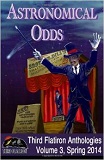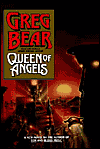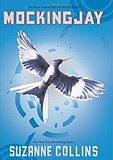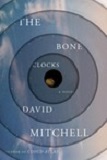The Fall of Hyperion, by Dan Simmons
Book Review by SJ Higbee
Have you read this book?
If you like your science fiction harder than diamond-tempered steel, spanning dozens of worlds and sprinkled with characters dealing with cosmic-sized issues, then Simmons is your man. From the same stable as Isaac Isimov and Stephen Baxter, Dan Simmons is not afraid to confront the big questions of life arrayed by all the trappings of a highly technological future. And it doesn't get bigger than musing over the purpose of God -- a chief theme running through this book.
The Hegemony is the dominant human community scattered among the stars, who can travel huge distances using farcasters while in constant communication with the datasphere. Humanity has reached its pinnacle. However, the mysterious Time Tombs on the planet Hyperion are starting to open, threatening humanity's future unless a small band of hand-picked pilgrims can somehow manage to avert the threat of terrible Shrike. While the rebel Ousters are also massing, looking for any opportunity to overthrow the Hegemony. And then there are the AIs...
The story unfolds in first person viewpoint through the voice of Joseph Severn and/or John Keats. Simmons manages to avoid one of my pet hates -- long lapses into omniscient viewpoint - by arranging for his protagonist to be mentally linked with the pilgrims in dreams as they undergo their various ordeals on Hyperion. Whilst Severn might not jump off the page with the same three-dimensional immediacy of Bujold's or Cherryh's heroes, Simmons has nevertheless given us a cast of well drawn, believable characters. This is a laudable achievement in a sub-genre where authors, busy grappling with the eye-watering complexity of their technology, too often end up with cardboard thin characters I don't care about. However, I had no problem turning the five hundred plus pages of this book, to discover what was going to happen next to Severn and his unfortunate colleagues. My personal favourite is Meina Gladstone, political leader of the Hegemony, whose world-weary wisdom and determination to do the right thing in impossible situations never seems pompous or sentimental.
While the story is undeniably gripping and the world realised with intelligence and huge imagination, for me the themes addressed in this book are what make it really interesting. Confronted with pain and loss, several of Simmons' characters, including Severn, examine the role of art within society. What insights can it give on the human condition? Particularly a humanity who believes it has banished illness and accidental death. If the role of art and the artist is questioned -- how much sharper must be those questions when putting religion under a similar spotlight. At what point should a person sacrifice themselves or another in the name of God? Has God any business demanding that kind of sacrifice? Does a prosperous community of humans in complete control of their surroundings need a God? If so, what kind of God? And if the AIs serving humanity decide they need a God -- what happens then?
Revealing the conclusions reached would spoil full enjoyment of the final pages, where these ideas are played out amongst the closing moments of the story. This is a book that I won't forget in a hurry. Simmons' fast-paced approach and readable style whips you hundreds of light years away to confront danger and some tough philosophical questions in a worthwhile, five star read.
The Hegemony is the dominant human community scattered among the stars, who can travel huge distances using farcasters while in constant communication with the datasphere. Humanity has reached its pinnacle. However, the mysterious Time Tombs on the planet Hyperion are starting to open, threatening humanity's future unless a small band of hand-picked pilgrims can somehow manage to avert the threat of terrible Shrike. While the rebel Ousters are also massing, looking for any opportunity to overthrow the Hegemony. And then there are the AIs...
The story unfolds in first person viewpoint through the voice of Joseph Severn and/or John Keats. Simmons manages to avoid one of my pet hates -- long lapses into omniscient viewpoint - by arranging for his protagonist to be mentally linked with the pilgrims in dreams as they undergo their various ordeals on Hyperion. Whilst Severn might not jump off the page with the same three-dimensional immediacy of Bujold's or Cherryh's heroes, Simmons has nevertheless given us a cast of well drawn, believable characters. This is a laudable achievement in a sub-genre where authors, busy grappling with the eye-watering complexity of their technology, too often end up with cardboard thin characters I don't care about. However, I had no problem turning the five hundred plus pages of this book, to discover what was going to happen next to Severn and his unfortunate colleagues. My personal favourite is Meina Gladstone, political leader of the Hegemony, whose world-weary wisdom and determination to do the right thing in impossible situations never seems pompous or sentimental.
While the story is undeniably gripping and the world realised with intelligence and huge imagination, for me the themes addressed in this book are what make it really interesting. Confronted with pain and loss, several of Simmons' characters, including Severn, examine the role of art within society. What insights can it give on the human condition? Particularly a humanity who believes it has banished illness and accidental death. If the role of art and the artist is questioned -- how much sharper must be those questions when putting religion under a similar spotlight. At what point should a person sacrifice themselves or another in the name of God? Has God any business demanding that kind of sacrifice? Does a prosperous community of humans in complete control of their surroundings need a God? If so, what kind of God? And if the AIs serving humanity decide they need a God -- what happens then?
Revealing the conclusions reached would spoil full enjoyment of the final pages, where these ideas are played out amongst the closing moments of the story. This is a book that I won't forget in a hurry. Simmons' fast-paced approach and readable style whips you hundreds of light years away to confront danger and some tough philosophical questions in a worthwhile, five star read.
|
Click here to buy The Fall of Hyperion, by Dan Simmons on Amazon
|
The Fall of Hyperion, by Dan Simmons on Amazon
| More Books You Might Like |
Comment on The Fall of Hyperion, by Dan Simmons




